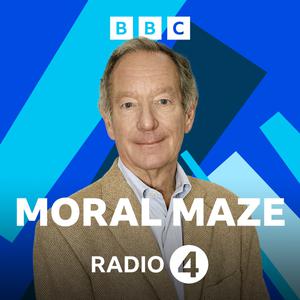
Moral Maze
BBC Radio 4
Combative, provocative and engaging live debate examining the moral issues behind one of the week's news stories. #moralmaze
- 56 minutes 48 secondsWhat should we do about inherited inequality?
In every species, including homo sapiens, the family is nature’s way of passing inequality down the generations. The family gives us our genetic make-up and a large proportion of our training, education, socialisation and cultural attitudes. It may bequeath to us wealth or poverty. None of this is fair.
Should we get cross about silver spoons and livid about nepotism? We don’t seem to. Inheritance tax is deeply unpopular (not just with farmers). And it's not merely money that tilts the scales when a child is born. There's the where and when of it, there's parental character and competence, there are genetic pluses and minuses. How should we, as a society, address the unfairness that results from inherited advantage? And how can we know whether it’s made a difference? Everyone claims to want equality of opportunity. Some of us want to measure our success by equality of outcome; the rest of us say ‘dream on.’
Should we aim to eradicate or compensate for inherited inequality? Should we try to correct for the effects of genetic and environmental misfortune? Or should we just accept that, in the words of William Blake, 'Some are Born to sweet delight. Some are Born to Endless Night'?
Chair: Michael Buerk Panel: Tim Stanley, Ash Sarkar, James Orr and Mona Siddiqui Witnesses: Aaron Reeves, Ruth Porter, Will Snell, Edward Davies.
Producers: Dan Tierney and Peter Everett. Editor: Tim Pemberton
9 January 2025, 4:15 pm - 56 minutes 47 secondsShould morality be enforced?
Here are the instructions for your office Christmas party, issued by the Public and Commercial Services Union: “Sexual harassment and inappropriate behaviour are just as unacceptable at social events as they are in the workplace. This includes unwelcome comments, gestures or physical actions. Alcohol is not a defence for such conduct and employers are obligated to address these issues seriously.” This could be considered an example of Moral Managerialism - a philosophy of enforcing, by rules and regulations, behaviour that once was left to the individual’s sense of decency. Since human beings are fallible, is this a welcome institutional safety net or an attack on an individual’s agency to do the right thing? Philosophically, can – and should – we try to make people better behaved? There’s one approach we haven’t tried, but it’s exciting some scientists. It’s called ‘moral bio-enhancement’ – basically a drug that can make you good, a do-as-you-would-be-done-by pill, a statin for the soul. If all you have to do, to be a good person, is obey the rules or take a tablet… can human virtue exist?
Chair: Michael Buerk Panel: Anne McElvoy, Mona Siddiqui, Giles Fraser and Inaya Folarin-Iman. Witnesses: Ros Taylor, Zoe Strimpel, Julian Savulescu and Andrew Peterson.
Producer: Dan Tierney Assistant Producer: Peter Everett Editor: Tim Pemberton
19 December 2024, 1:08 pm - 56 minutes 31 secondsIs democracy still the 'least worst' form of government?
After decades of despotism, Syria is facing an uncertain but cautiously hopeful future - though many are sceptical about the sort of government that will replace the dynastic Assad regime. While Syria has endured 13 years of civil war, another shock has been the unravelling of South Korea, formerly a beacon of stability, with the president's short-lived attempt to declare martial law. And then there is Donald Trump looking to pardon the US Capitol rioters, who wanted to overthrow the government on January 6th 2021. Even in liberal democracies, it seems, power is above the law. So much for the moral superiority of democracy?
What does all this say about us? Surveys suggest democracy doesn't matter as much to younger generations. Strongman authoritarians abound and are admired across Europe and beyond. Meanwhile in the UK, the gap between the share of votes won in the 2024 general election and the share of Parliamentary seats is the largest on record.
Is democracy still the best, most efficient and most moral from of government?
Chair: Michael Buerk Panel: James Orr, Ella Whelan, Giles Fraser and Tim Stanley Witnesses: Sam Ashworth-Hayes, Rhiannon Firth, Robert Griffiths and Erica Benner.
Producer: Dan Tierney Assistant producer: Ruther Purser Editor: Tim Pemberton
12 December 2024, 1:55 pm - 56 minutes 39 secondsWho and what is 'toxic'?
The allegations about Gregg Wallace’s behaviour on set have been described as being part of a "toxic environment". Once primarily used in the domain of plants, arrows and chemicals, “toxic” - which is defined as “poisonous” – only relatively recently started being applied to workplaces and people: parents, siblings, neighbours, exes and co-workers.
Those who have experienced a toxic work culture or colleague might describe a deterioration in their personal and professional well-being – the causes of which may be difficult to define – or prove – on their own. While sexual harassment, racism, and bullying should be clearly understood, a toxic environment may involve more subtle things at play: a lack of trust, favouritism, unrealistic expectations or an atmosphere of negativity.
But what are we to make of a concept which hinges on how an aggrieved person feels rather than the defined behaviour of the perpetrator? Is it an important redress for those who have for too long suffered in silence – or an over-compensation which irredeemably labels the wrongdoers? What should – and shouldn’t – we be prepared to accept in a workplace or in a relationship? If a boss sets a negative tone in an office, due to their own pressures and stresses, does that make them “toxic”? When does an off-colour joke become “toxic”? Is it possible to detoxify cultures like the entertainment industry, which thrives on the egos of the “talent”? And when is it OK to cut off a “toxic” relative?
Chair: Michael Buerk Panel: Sonia Sodha, Konstantin Kisin, Matthew Taylor and Anne McElvoy Witnesses: Ben Askins, Joanna Williams, Becca Bland and Donald Robertson.
Producer: Dan Tierney Assistant producer: Ruth Purser Editor: Tim Pemberton
5 December 2024, 11:32 am - 56 minutes 33 secondsWhat is a healthy attitude to death?
The debate around assisted dying exposes fundamental questions about our attitudes to death. We will all die. Nothing is more certain. But it’s not something most of us really think about, apart from superficially. We can often think of death as something that happens to other people. There’s a paradox – we are more distanced from death than our ancestors, yet we are exposed to it every day in the news and value it as a key component of art and entertainment. We can have a morbid fascination with death but a fear of confronting our own mortality.
While, fear, anxiety and avoidance are deeply human responses, are they good for us both psychologically and morally? Those advocating a “death positive” approach see honest conversations about death and dying as the cornerstone of a healthy society. In theory, thinking about your death should put your life into perspective and direct your actions towards things that are good for you and others. But is that necessarily the case? Should death ever be seen as anything less than a tragedy? During the pandemic, there were concerns about the subtle messaging around the ‘acceptability’ of some deaths over others. In conflict, repeated exposure to death causes a callus to form, where there may be less empathy for the dead as a survival mechanism for the living.
Does a greater openness and acceptance of death help us to live better lives? Or can losing the fear of death mean we lose something of what it means to be human? What is a healthy attitude to death?
Chair: Michael Buerk Panel: Matthew Taylor, Ash Sarkar, Konstantin Kisin and Anne McElvoy Witnesses: Charlotte Haigh, Anton Noble, Victoria Holmes, Teodora Manea.
Producer: Dan Tierney Assistant producer: Ruth Purser Editor: Gill Farrington and Chloe Walker.
28 November 2024, 9:59 am - 56 minutes 27 secondsIs loyalty a virtue or a vice?
Donald Trump has made some eyebrow-raising, some might say jaw-dropping, appointments to his top team. While a number of the appointees still need Senate approval, they all appear united by one thing – loyalty to Donald Trump.
Some consider loyalty to be a foundational virtue that is central to close friendships. Seneca, called it “the holiest virtue in the human heart”. It is more than simply “support” – it suggests a duty to support “come what may”. Others, however, think loyalty can enable controlling behaviour, hide self-interest, encourage tribalism and threaten independent thought. If a close friend violates your ethical code, to what extent should you stay loyal to them? Or should you only be loyal to the person you thought they were?
Outside the realm of inter-personal relationships, loyalty to an organisation, the government, the Crown or the Church can mean both faithfulness to its principles and deference to its hierarchy. Here, calling out the institution is both an act of betrayal and loyalty, depending on how it is viewed.
Do we value loyalty in our personal and professional lives any less than we did 50 years ago? And is that a good or a bad thing? Perhaps we just have a healthier perspective about who and what deserves our loyalty?
Is loyalty a virtue or a vice?
Chair: Michael Buerk Panel: Mona Siddiqui, Tim Stanley, Inaya Folarin-Iman and Giles Fraser Witnesses: Josie Stewart, Major General Tim Cross, Anouchka Grose, Tony Milligan.
Producer: Dan Tierney Assistant producer: Ruth Purser Editor: Gill Farrington
21 November 2024, 11:58 am - 56 minutes 38 secondsDoes intent matter?
Celebrity chef Jamie Oliver has pulled his new children's book from the shelves after complaints that it stereotyped Indigenous Australians. Some First Nations leaders have called the book "offensive". Oliver says it was not his “intention".
This case raises philosophical questions about the role of intent in the way we act and in the way we judge the actions of others. If harm is measured by the impact of an action rather than the intention behind it, how much does the intention matter at all? The fact that the law distinguishes between murder and manslaughter suggests that intent is indispensable in assessing moral culpability. On the other hand, being tired or incompetent at the wheel of a car may result in a more deadly outcome than knowingly driving recklessly. In our everyday relationships, we all make excuses for our behaviour when we mess up, but what makes a good excuse – a work-deadline, a wailing infant, ignorance? More complicated still, how can we discern someone’s intent not to cause harm or offense, particularly if we don’t inhabit the same social or cultural reality?
Does intent matter? After all, you know what they say about the road to hell…
Chair: Michael Buerk
Panellists: Ash Sarkar, James Orr, Mona Siddiqui and Giles Fraser
Witnesses: Daniel Browning, Brendan O'Neill, Dr Paul Youngbin Kim, Professor Paulina Sliwa.
Producer: Dan Tierney Assistant producer: Ruth Purser
14 November 2024, 12:39 pm - 56 minutes 11 secondsVAT on private school fees: justice or spite?
The tax increases on private schools, though long trailed, were among the most emotive measures in last week’s blockbuster budget, because they’re widely seen to be as much a moral issue as a question of politics or economics. It was a former Conservative education secretary, Michael Gove, who asked: why should the state support the already wealthy to buy advantage for their children? Others see it as an attack on aspiration and excellence, ”a vindictive piece of class warfare on parents who scrimp and save to pay fees”, according to Mr Gove’s former colleague David Davies. Taxing private schools – justice or spite? PANELLISTS: Ash Sarkar, Ella Whelan, Giles Fraser, Mona Siddiqui PRESENTER: Michael Buerk PRODUCER: Catherine Murray ASSISTANT PRODUCER: Ruth Purser EDITOR: Tim Pemberton
7 November 2024, 11:51 am - 56 minutes 38 secondsThe morality of sending offenders to prison.
Overcrowded, understaffed and in disrepair, Britain’s prisons are in crisis. One of the first acts of the Labour government was to announce that thousands of prisoners would be let out early to make room for the next wave of inmates. The Scottish government has a similar scheme. Press photographs taken at prison gates show chortling convicts cheering the Prime Minister before climbing into luxury cars and heading off to celebrate.
Arguments rage between those who say we send too many offenders to prison (more, as a proportion of the population, than any other country in Europe) and those who say we don’t catch and punish enough criminals, so we need tougher policing and more jails.
Perhaps the prison crisis is a blessing in disguise, because it is stimulating new ideas. Initiatives are already under way that may develop into long-term solutions. Reformers want more sentences of community service, more curfews enforced by electronic tagging, more flexible parole used as a reward for good behaviour. They point out that the nations with most prisoners are also, by and large, the countries with most crime; in Britain, they say, lawbreaking flourishes in the absence of both deterrence and rehabilitation.
Our sentencing tariffs, criminologists insist, are incoherent and morally dubious; we are too hard on some offenders and too soft on others; we should rewrite the guidelines to distinguish more clearly between wicked criminals and hapless inadequates; most offenders need support, guidance and incentives to address their problems, not incarceration.
But that’s not what the voters tend to think, so it’s not what MPs have tended to support. The majority view has always been that prisons should be used to protect the public. What’s more, they should be unpleasant places, to express society’s disapproval of criminality, and sentences should be longer, because there has to be punishment as well as rehabilitation.
Lock ‘em up or let ‘em out?
The panel: Sonia Sodha, Giles Fraser, Inaya Folarin Iman, Matthew Taylor. Witnesses: Ayesha Nayyar, Scarlett Roberts, Peter Bleksley, Dr Hindpal Singh Bhui
31 October 2024, 3:49 pm - 56 minutes 22 secondsHow should we help the global poor?
“Dawn... and as the sun breaks through the piercing chill of night on the plain outside Korem, it lights up a biblical famine, now, in the 20th century...” Those words, spoken by Michael Buerk 40 years ago, pricked the world’s conscience, triggered an unprecedented humanitarian effort, led to Live Aid and spawned institutions like Comic Relief. Since then, more than a billion people around the world have climbed out of extreme poverty, although around 700 million people still live on less than $2.15 a day, according to the World Bank.
Times have changed. Not only is the media landscape vastly different, making competing demands on our attention, but also our attitudes to helping the poor around the world are different. The question is not simply whether we have a moral duty to help people in other countries, but HOW we should help them.
In a post-pandemic world, there are those who advance ever stronger arguments for ending poverty through debt cancellation, robust institutions and international co-operation. Critics of development aid, however, see it as wasteful, ineffective and enabling corruption: ‘poor people in rich countries subsidising rich people in poor countries’. Others view the sector as a legacy of European colonialism, citing Band Aid’s portrayal of Africa as emblematic of the ‘White saviourism’ ingrained in the system. Others, meanwhile, believe the best way to help people is to bypass institutions altogether, and give cash directly to individuals to make their own decisions about how to spend it.
40 years on from Michael Buerk’s landmark report from Ethiopia, how should we help the global poor?
Chair: Michael Buerk Producer: Dan Tierney Assistant producer: Ruth Purser
Panellists: Ash Sarkar Anne McElvoy Inaya Folarin Iman Carmody Grey
24 October 2024, 8:57 am - 56 minutes 45 secondsShould Foreign Tourism Be Discouraged?
In recent weeks tens of thousands of protesters have taken to the streets in Spain’s most popular tourist destinations. From Málaga to Mallorca, Gran Canaria to Granada, locals are revolting against what they see as the hollowing out of their communities with the buying up of properties to turn them into short-stay holiday lets for people they argue don’t respect their locality, culture or language. UNESCO has described the situation as "totally out of balance".
On one level this is an argument about economics, but the implications are profoundly moral. People shouldn’t feel like second-class citizens in their own towns, but we also recognise the freedom to move, rest and discover. The affordability of travel makes mass tourism possible, but it’s lamented by those who see it as selfish, narcissistic and damaging to native cultures and the environment. And yet travel supposedly broadens the mind and the soul – a cultural exchange that can be a catalyst for self-improvement, make us more empathetic, and provide a livelihood for host communities.
Should foreign tourism be discouraged? Or if it’s mass tourism we’re worried about, what can we do about it without holidays becoming an elitist pursuit?
Producer: Dan Tierney Assistant producer: Ruth Purser
Panel: Giles Fraser Sonia Sodha Ash Sarkar Tim Stanley
Witnesses: Guillem Colom-Montero Jim Butcher Anna Hughes Emily Thomas
15 August 2024, 11:33 am - More Episodes? Get the App
Your feedback is valuable to us. Should you encounter any bugs, glitches, lack of functionality or other problems, please email us on [email protected] or join Moon.FM Telegram Group where you can talk directly to the dev team who are happy to answer any queries.
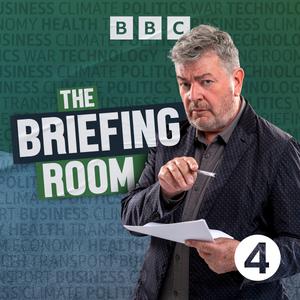 The Briefing Room
The Briefing Room
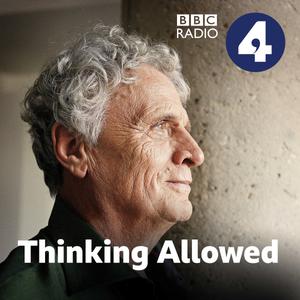 Thinking Allowed
Thinking Allowed
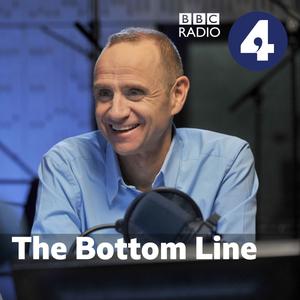 The Bottom Line
The Bottom Line
 Analysis
Analysis
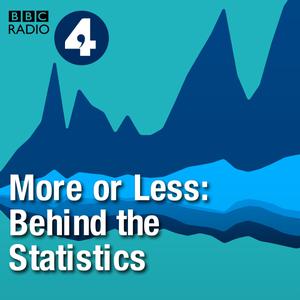 More or Less: Behind the Stats
More or Less: Behind the Stats
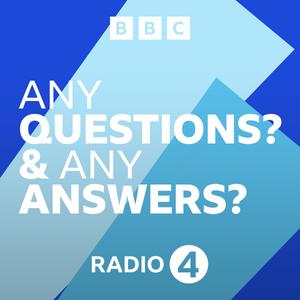 Any Questions? and Any Answers?
Any Questions? and Any Answers?